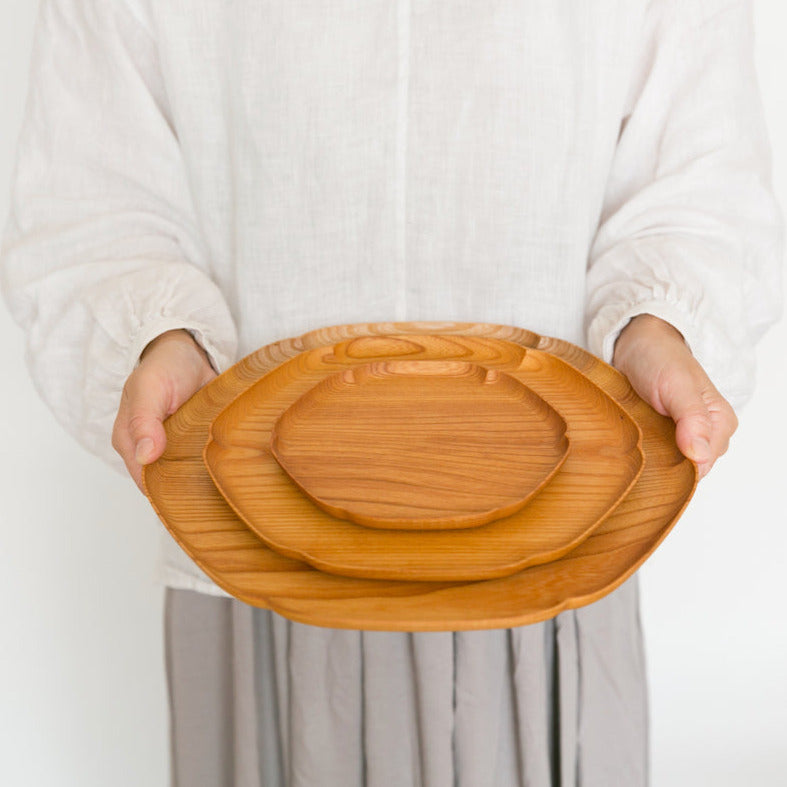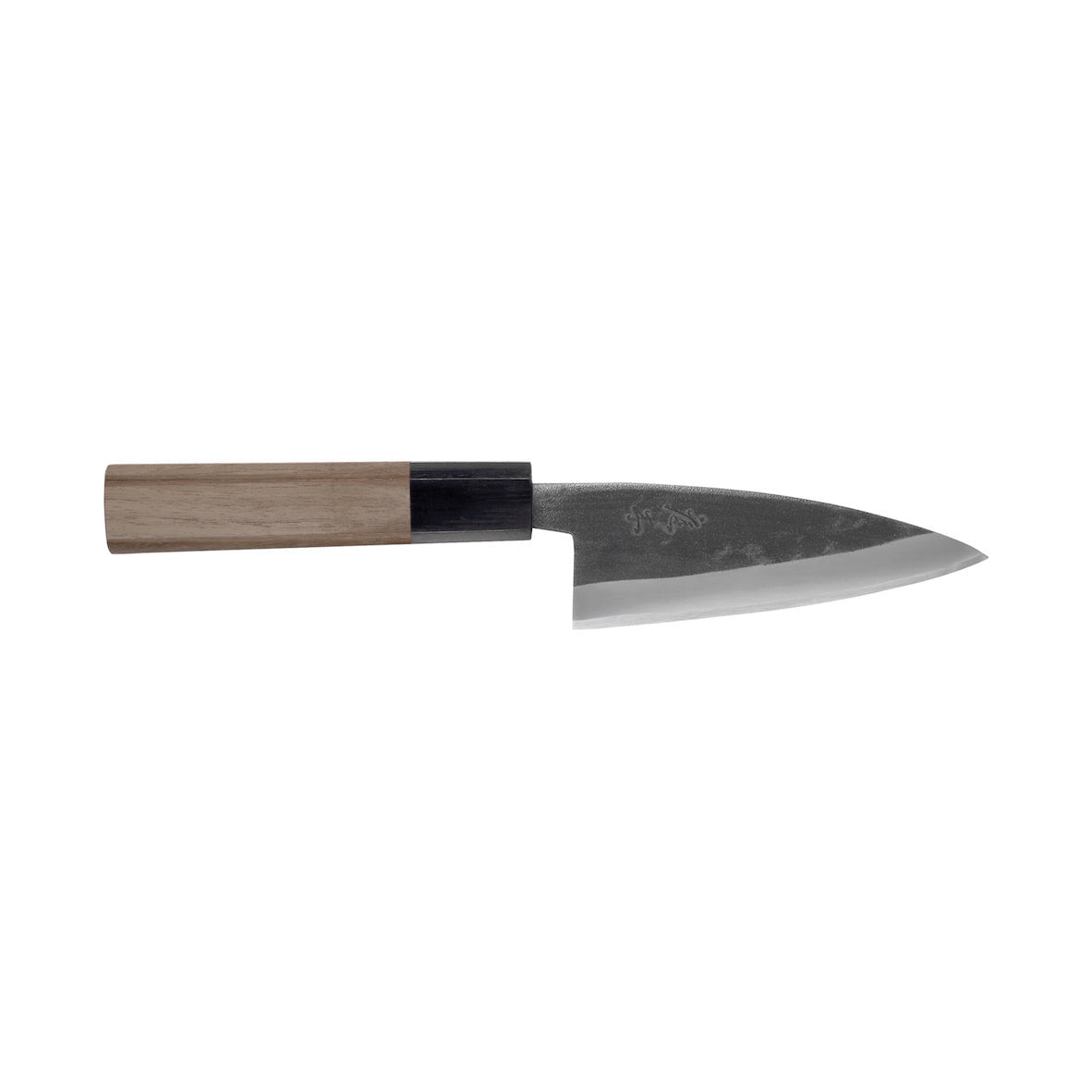
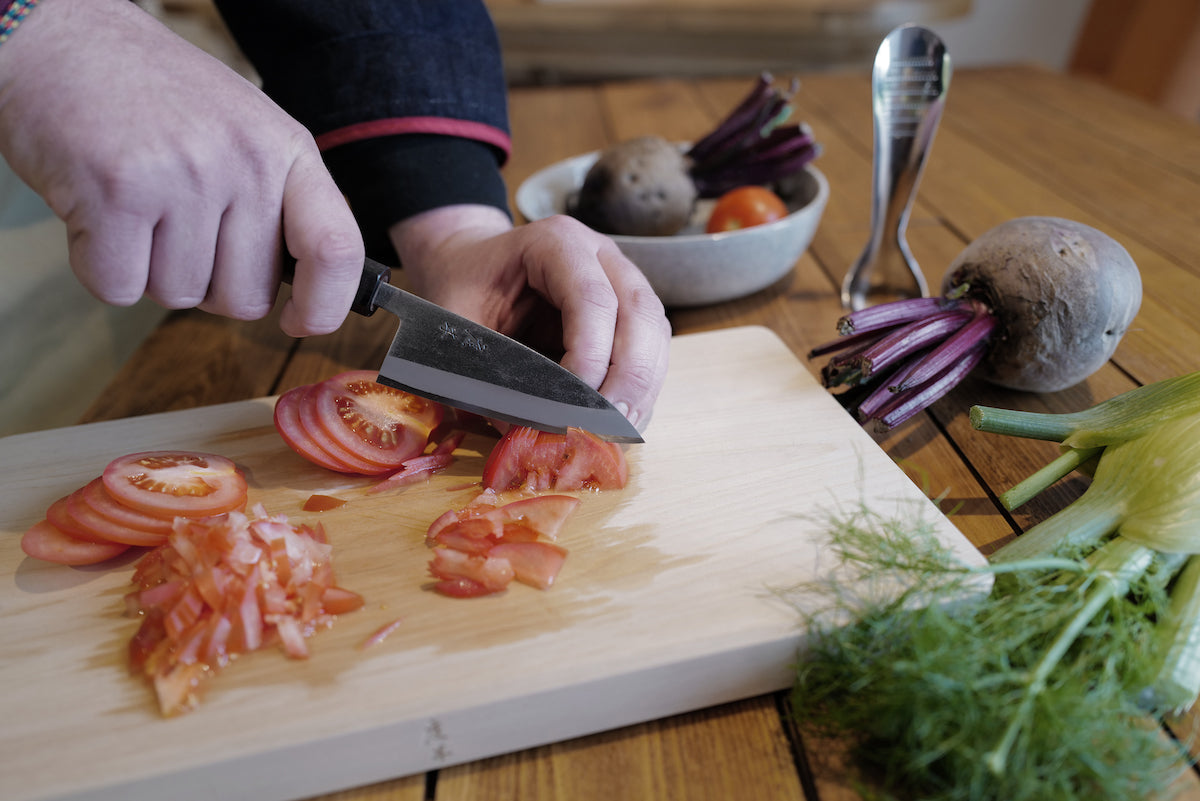
Japanese Kitchen Knife | Tadafusa x Niwaki | Ajikiri 105mm
 Sofort lieferbar
Sofort lieferbar
Bereits in 2-3 Werktagen bei dir.
Kostenfreier Versand ab CHF 100,-
- Material blade: Shirogami white paper steel
- Blade thickness: 3.0-1.0mm
- Hardness of the cutting edge: 63 HRC
- Blade length: 105mm
- Overall length: 225 x 15 x 35mm
- Weight: 75g
- Handle: walnut (octagonal)
- Ferrules: plastic
- Knife type: Ajikiri the smallest (named after the Aji fish, a type of mackerel) ideal for filleting fish .
- Gift box
- Manufacture: Tadafusa
- Handmade in Sanjo Japan
Choose options


Beschreibung
Beautifully balanced and simple Japanese kitchen knife with white paper steel blades and walnut octagonal handle. Unsurpassed in weight, feel, quality and price/performance, for a three-ply Japanese steel knife.
The White Paper Steel is a popular choice for Japanese chefs as they are quick and easy to sharpen, making them suitable not only for regular sharpening, but also for beginners.
The sharp blades are made of carbon steel (both the inner and outer layers) and will oxidise and rust if not cared for - clean, dry thoroughly, and brush with a little camelia oil when not in daily use.
Wash by hand and dry well - regular use is the best care!
Each knife is unique and comes in a high-quality cardboard box.
Care instructions:
Be careful with Japanese knives - the steel is brittle. Do not cut bones, do not use them on hard surfaces.
- Hand wash
- Avoid soaking - especially with traditional knives, as this expands the wooden handles .
- Dry thoroughly
- Store individually
- Wipe with camelia oil if not used regularly .
- Sharpen every fortnight or so if used regularly.
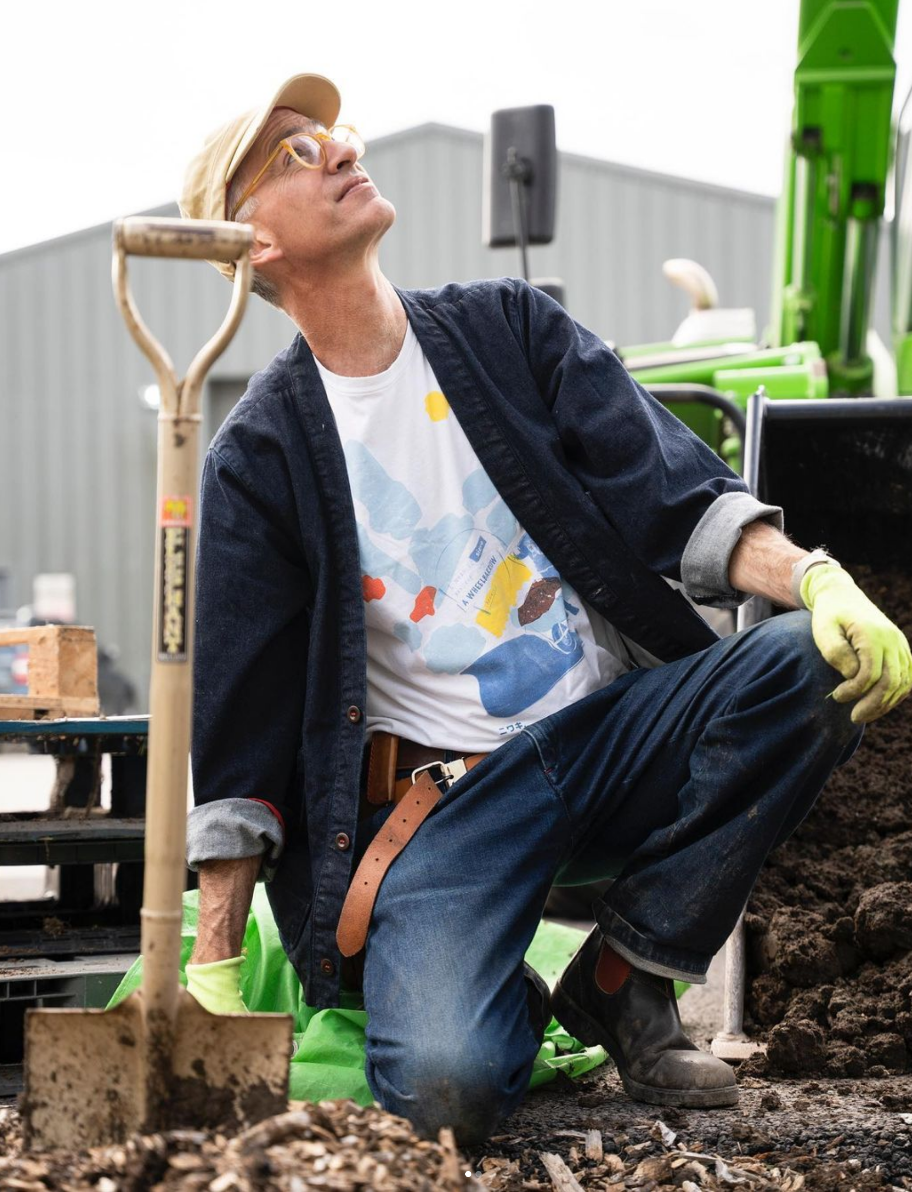
Die Story zu NIWAKI
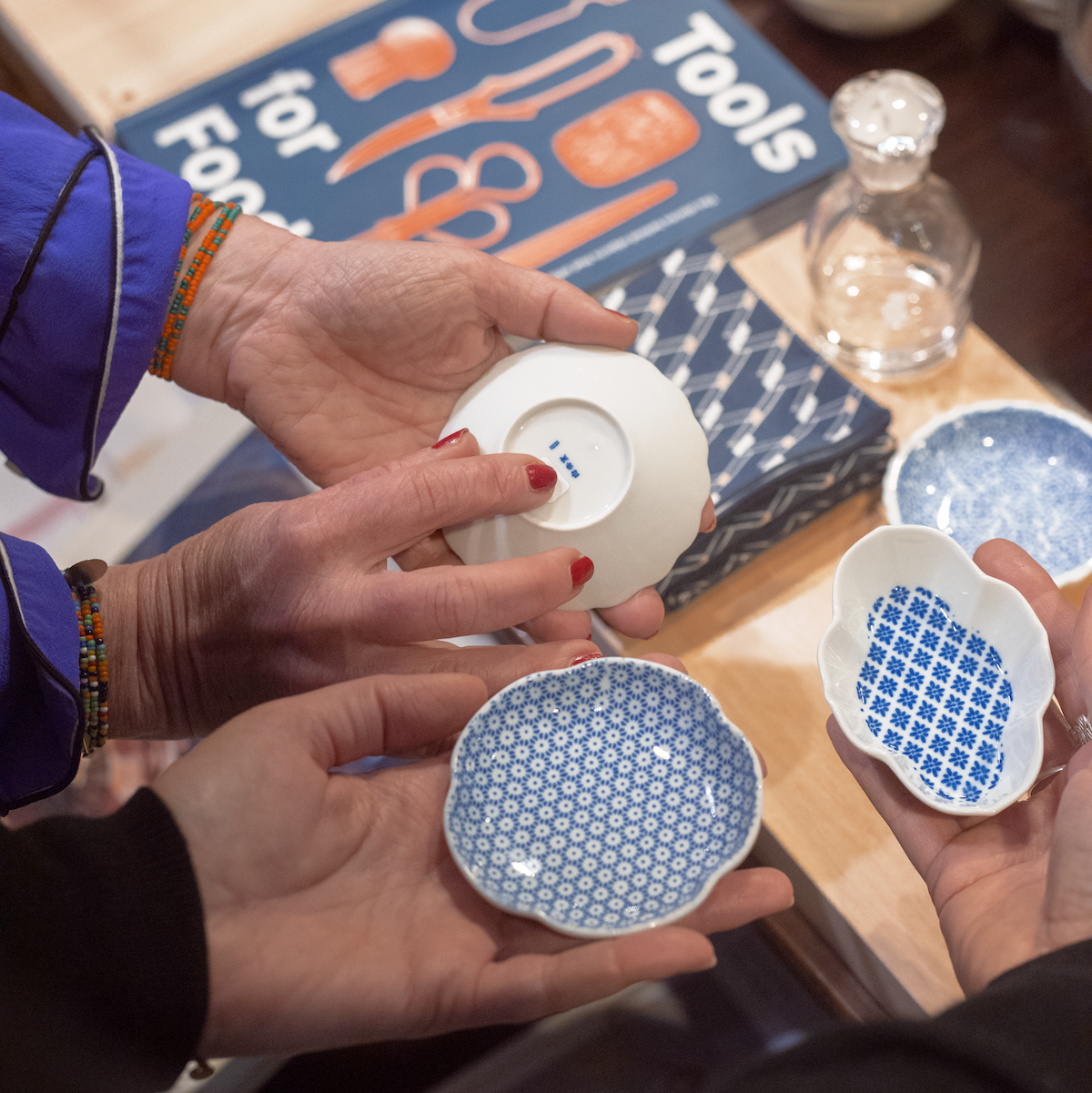
Wollt ihr wissen wer hinter ASANDRI steht
«Wir glauben, dass die Kombination von grossartigem Design und handwerklichen Können wichtig ist. Deshalb unterstützen wir Handwerker weltweit, um ihre Fähigkeiten und Handwerksbetriebe für viele weitere Generationenzu erhalten.»
Kontaktiere uns: info@asandri.com
